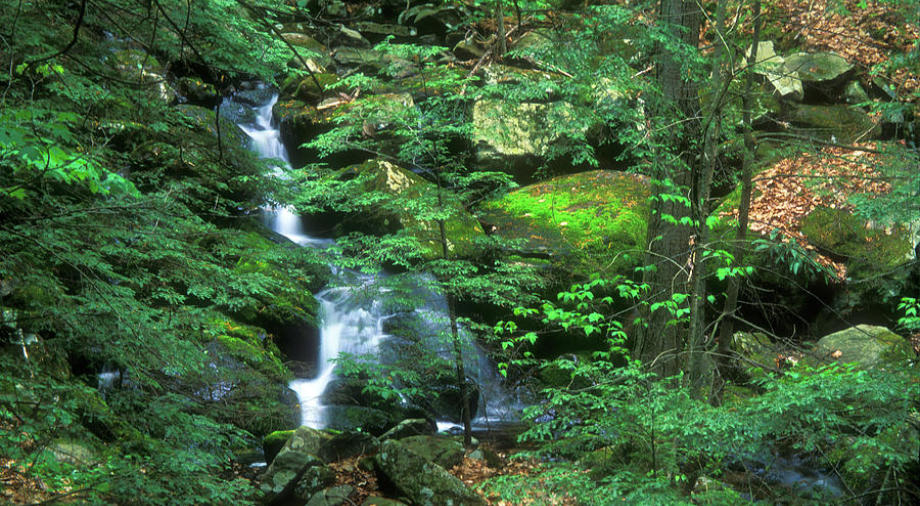
Protecting Massachusetts Forests in the Time of Climate Emergency
An educational Speakers' Series
Reducing Heat Trapping Emissions from Energy Use and Storing More Carbon in Forests to Achieve a Safe Climate ~ May 12, 2020
William Moomaw, Ph.D is Professor Emeritus of International Environmental Policy at The Fletcher School of Law and Diplomacy, Tufts University. He was the founding Director of the Center for International Environment and Resource Policy, the Tufts Climate Initiative and co-founder of the Global Development and Environment Institute.
Description At this critical time of climate change and the global coronavirus pandemic, what role can our forests play to mitigate these issues? In this presentation, Professor Moomaw discusses forest ecology, history and climate impacts of our woodlands with an emphasis on the importance of mature forests and bigger trees for sequestering more carbon. Topics also include the human use of forested areas, impacts of logging on the integrity of forest ecosystems, how human activity contributes to pandemics like the one we are experiencing, and the value of letting forests grow.
Our Massachusetts Forests - To Cut, or Not to Cut? That is the question.
May 19, 2020
Bill Stubblefield holds a Doctorate in Biology from Harvard University with a focus on Ecology and Evolution. He has published on the the behavioral ecology of solitary wasps and the evolutionary biology of the sex ratio. His current focus is on the role forests can play in mitigating Catastrophic Climate Change and Biodiversity Collapse. As an activist, he works to save as much of the living world as possible and extend social justice to all the people of planet Earth. He lives in Wendell, MA
Michael Kellett is the executive director of RESTORE: The North Woods, which he co-founded in 1992. He developed the proposal for a 3.2-million-acre Maine Woods National Park, which led to the 2016 designation by President Obama of Katahdin Woods and Waters National Monument. In 2009, he was a member of the citizen advisory committee to Massachusetts DCR’s Forest Futures Visioning Process. He helped to develop a bill to protect Massachusetts’ publicly owned land, introduced in January 2019. He lives in Lincoln, MA.
Description: Forest management for forest health and biodiversity are hot topics. Important questions have been raised.
Is cutting in our forests helpful for forest health?
What does it mean to manage forests for wildlife?
What are examples of different management styles and their real on the ground outcomes?
What are other parts of the country and the world dong to protect forests?
Paying to cut and burn forests: Is this really what we want for renewable energy? June 9, 2020
Mary S. Booth, Ph.D., Founder and Director of the Partnership for Policy Integrity, directs PFPI’s science and advocacy work on greenhouse gases, air pollution, and forest impacts of biomass energy.
Description
Biomass energy is growing rapidly worldwide due to its inclusion in renewable energy
programs that make it eligible for financial incentives, including in Massachusetts. However, despite being treated as “green” and carbon neutral, burning forest wood for energy actually emits more climate and air pollution per unit energy than most fossil fuels. And harvesting for biomass creates negative impacts on our forests. Join ecosystem scientist Mary Booth, Director of the Partnership for Policy Integrity, to hear about PFPI’s science, activism, and litigation concerning biomass energy in the US and Europe.
Forests and Brain Health: Emerging Science June 16, 2020
Susan A. Masino, Ph.D., is a Professor of Applied Science at Trinity College and a recent Bullard Fellow in Forest Research at Harvard University. Her research focuses on links among metabolism, brain activity and behavior and she is dedicated to educational, environmental and public policy issues affecting brain health.
Description
The link between forests and brain health is a public policy imperative: we face increasing costs for disorders ranging from Alzheimer’s disease to addiction, and forests offer exercise, mindfulness and stress reduction. We are still discovering new species, and forests are a former and a likely future source of new medicines. Research on cardiovascular, immune and neurological systems is expanding worldwide. In people of all ages, a forest can increase kindness, altruism, and generosity by provoking awe - the sense of wonder you feel in the presence of something beyond your understanding. For these and many other reasons, natural forests should be protected and accessible to citizens across the state.
Praise the Dead: The Role of Dead Trees and Fire in Forest Ecosystems
July 28, 2020
George Wuerthner is an ecologist and photographer who has published 38 books, including Wildfire: A Century of Failed Forest Policy, Protecting the Wild: Parks and Wilderness Foundation for Conservation and Keeping the Wild: Against the Domestication of the Earth.
Michael Kellett has worked for more than 30 years to create national parks, save forests and protect wildlife. He is the co-founder and executive director of the New England-based nonprofit organization, RESTORE: The North Woods.
Description
Many of us have heard about the wildfires in the West. Why are they happening? How do current policies address fire issues? Are they beneficial or counterproductive? Are policy changes needed and if so, what should be considered?
What about Massachusetts? Are we at risk for forest fires here? Why are controlled burns being done on our state lands? Are they beneficial or counterproductive? Are policy changes needed and if so, what should be considered?
In this presentation, George Wuerthner discusses his experience with wildfires in the Pacific Northwest and California. Michael Kellett talks about fires in Massachusetts that are being done in the name of habitat restoration and fire suppression. This includes the Montague Plains, Muddy Brook Wildlife Management Area, and Myles Standish State Forest as examples of “restoring” pine barrens, the cultural and ecological histories of these areas, and the benefits of letting nature take its course in forest ecosystems.
